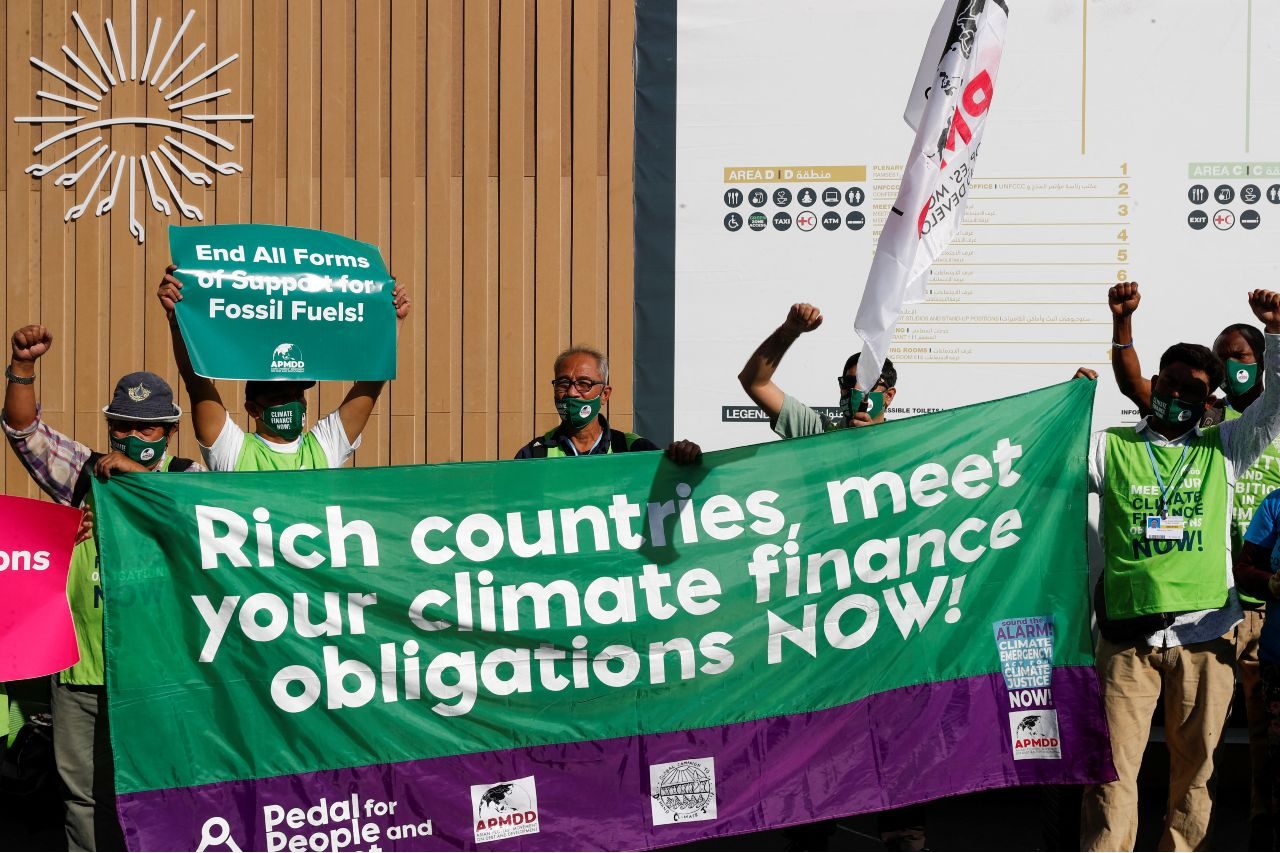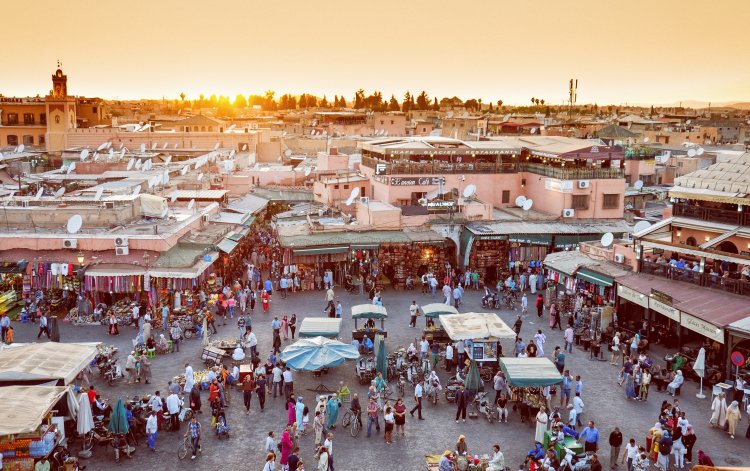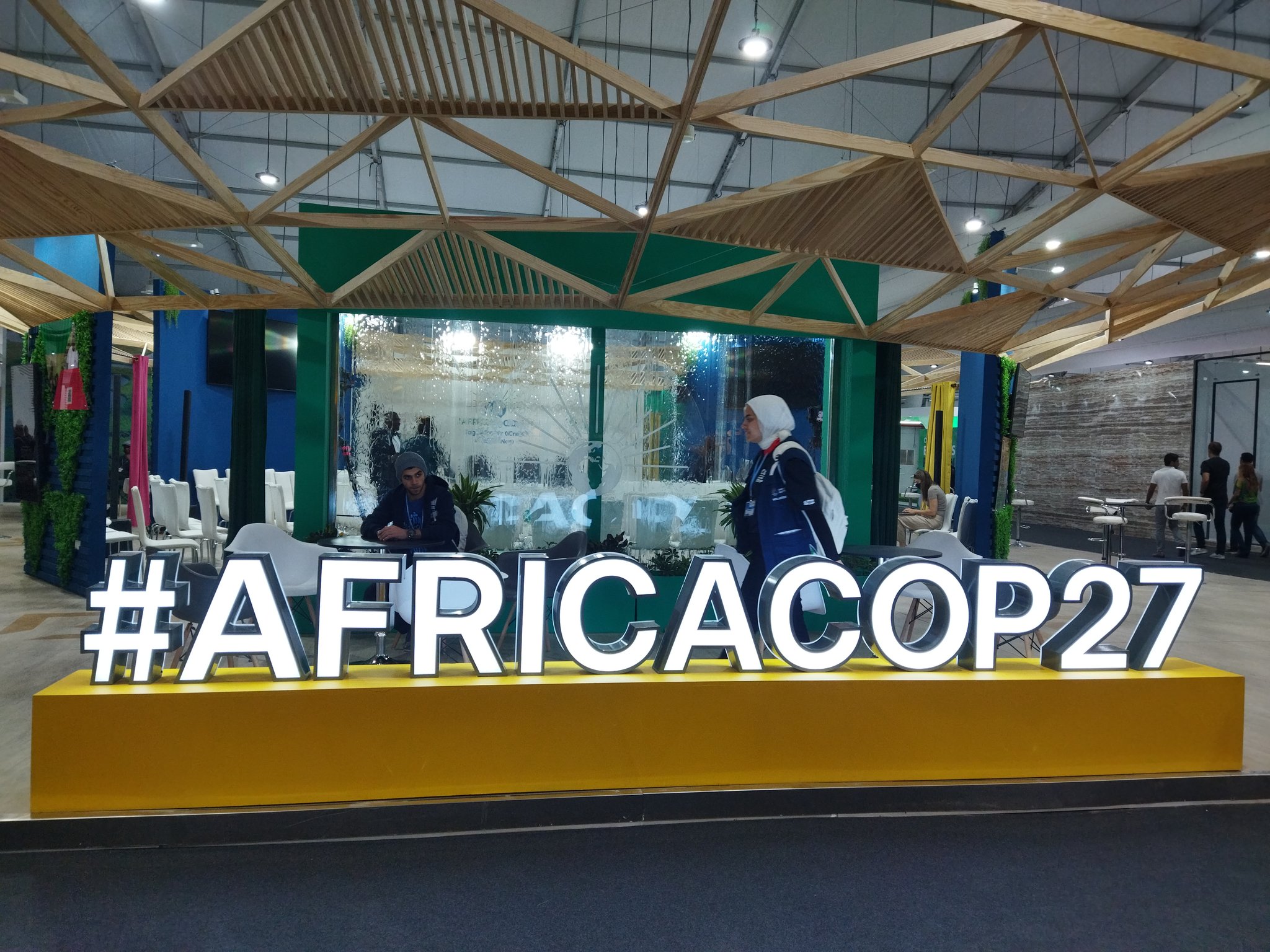
Young people call on the South African government to act against climate change
Why Climate Cash Could Make or Break COP27
Mohamed Adow / Al Jazeera
(November 5, 2022) — International climate change conferences are weighty enterprises — they must stand on solid pillars of action, not just warm words and hot air. Starting on Sunday, the United Nations climate meeting in Egypt, COP27, will be no different. And no pillar is more important for Africa than international climate finance.
This year’s meeting of world leaders has been christened the “Africa COP”, not because the continent is playing host, but because it is increasingly taking many of the biggest hits from the effects of climate change while having done the least to cause the crisis. Africa emits only about three percent of global carbon dioxide emissions. This year we need to see African priorities at the heart of the global negotiations.
Previous pledges by developed countries, the biggest carbon emitters, to channel $100 billion a year by 2020 towards helping vulnerable nations adapt to climate change have gone unfulfilled.
Yet, even if rich countries were meeting their commitments, that wouldn’t be nearly enough. Africa alone faces a climate-financing gap of about $108 billion each year, according to the African Development Bank, amid growing economic shocks from the COVID-19 pandemic and the war in Ukraine. Rich nations need to step up further.
But here’s the biggest problem: The very structure of global climate finance currently is loaded against countries that need the most help. Polluters are rewarded. Meanwhile, the more vulnerable a country is, the less support it is likely to receive.
It’s the dirty secret of climate talks.
Financing structures discriminate against the
very nations that need the most help.

Dirty Truth of Climate Finance
Most financial support is promised in the form of loans, shackling some of the world’s poorest countries with crippling debt. According to new research by Oxfam, Senegal, which is among the world’s most climate-vulnerable countries, has so far received 85 percent of its climate finance in the form of debt. This – even though the West African nation is at moderate risk of falling into debt distress and has debt amounting to 62 percent of its gross national income.
Oxfam says loans constitute more than 70 percent ($48.6bn) of public climate finance. How can it be fair that countries that have done almost nothing to cause the climate crisis are being pushed into debt in order to adapt to it?
If that’s the state of public finance, things are even worse with the private sector. Private funding decisions are still influenced by perceptions that view poor and vulnerable countries as risky investment destinations. As a consequence, Africa receives less than 4 percent of private climate finance even though many of its nations are on the front line of the crisis.
It’s also very difficult to attract climate finance that enables leapfrogging to renewable energy projects in Africa. According to the International Renewable Energy Agency (IRENA), Africa has received only 2 percent of global renewable energy investments over the past two decades.
Africa’s Burden
This current structure of climate finance is self-defeating, in its failure to help those that need assistance the most. It is also deeply unfair, as Africa knows only too well.
Besides having a smaller carbon footprint than other continents, Africa also absorbs global emissions, through ‘carbon sinks’ such as the Congo Basin — the world’s second-largest tropical rainforest after the Amazon.
Yet, the continent is highly dependent on climate-vulnerable operations such as agriculture, hydropower production and tourism, exposing it to disruptions from extreme weather events, including worsening droughts and floods — all apart from environmental degradation.
In early October, African ministers gathered in Kinshasa for negotiations ahead of the COP27 summit. They, as well as UN officials, called out the broken promises on finance at the meeting. UN Deputy Secretary-General Amina Mohammed said: “The finance currently available is a pittance with respect to the magnitude of disasters vulnerable nations and people are facing and will face.”
What COP27 Needs
At last year’s COP26 in Glasgow, climate finance was a muted issue; not because it wasn’t raised, but because rich economies like the United States and the European Union conveniently turned a blind eye to it. That is unacceptable.
The COP27 conference should rest on the pillar of climate finance, among other strategic areas. And this time, rich nations should be legally bound to follow through on their pledges. This shouldn’t be viewed as a favour from the polluters; it’s what they owe the rest of the world.
International climate finance initiatives that COP27 agrees to must span funding support to help poorer and vulnerable nations mitigate the effects of climate change and adapt to them. They must also cover the third key component of climate finance — addressing losses and damages caused by the crisis.
To this end, COP27 should set out to establish a financing facility focused on loss and damage, and swiftly take steps to operationalise it. Further, consensus is needed in making this finance grant-based to avoid piling a debt burden on African countries.
Reasons for Hope
Despite the odds, there is a growing appetite for financing and investing in climate projects in Africa. Big-ticket green projects have been built in recent years, and many more are taking shape.
In East Africa, Kenya is focusing on geothermal development and recently set up the 310MW Lake Turkana Wind Power project, which helped offset 0.7 million tonnes of carbon emissions in its first year of operation – that’s more than 4 percent of Kenya’s total annual emissions. The country has also committed to transitioning entirely to renewable energy by 2030. Ethiopia is in the process of developing its own geothermal resources.
In the north, Morocco recently started operating the first phase of Noor II, a mega solar project with a capacity in excess of 300MW.
A sustainable switch to a green global economy would, in addition to producing clean energy, also create new jobs while offering fallback options to those whose jobs disappear in this transition.
Yet increased funding and investments are still hampered by a negative perception of risk among investors, underdeveloped green finance markets — and most of all, by the very model of climate finance that punishes the nations most exposed to climate change.
This must change. Climate finance must be a central conversation at COP27. It’s time that this support reaches those who actually need it the most now — so we can build a better tomorrow for all of us.
Mohamed Adow is Founder and Director of Power Shift Africa. He is an international climate policy expert and ardent advocate for the people of developing nations — who are disproportionately affected by climate change but play almost no role in causing it. The views expressed in this article are the author’s own and do not necessarily reflect Al Jazeera’s editorial stance.
Posted in accordance with Title 17, Section 107, US Code, for noncommercial, educational purposes


